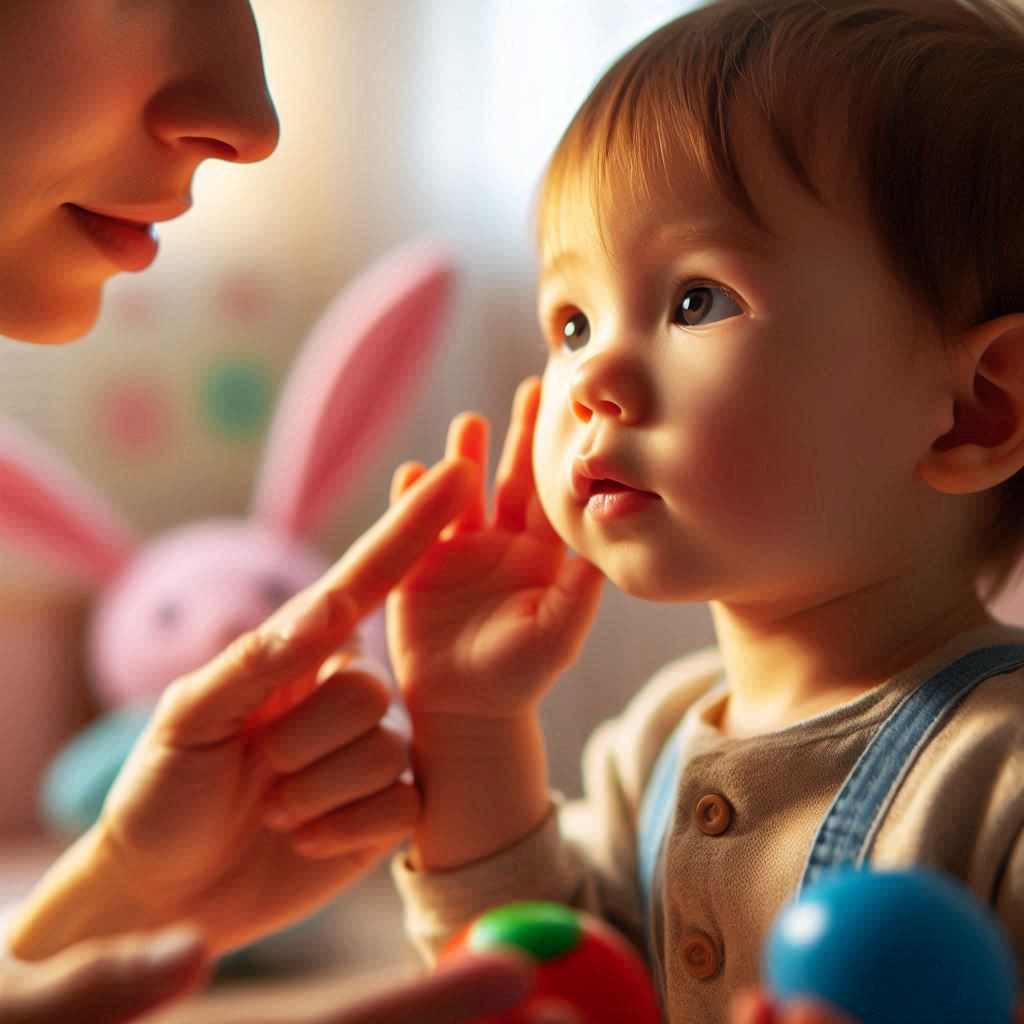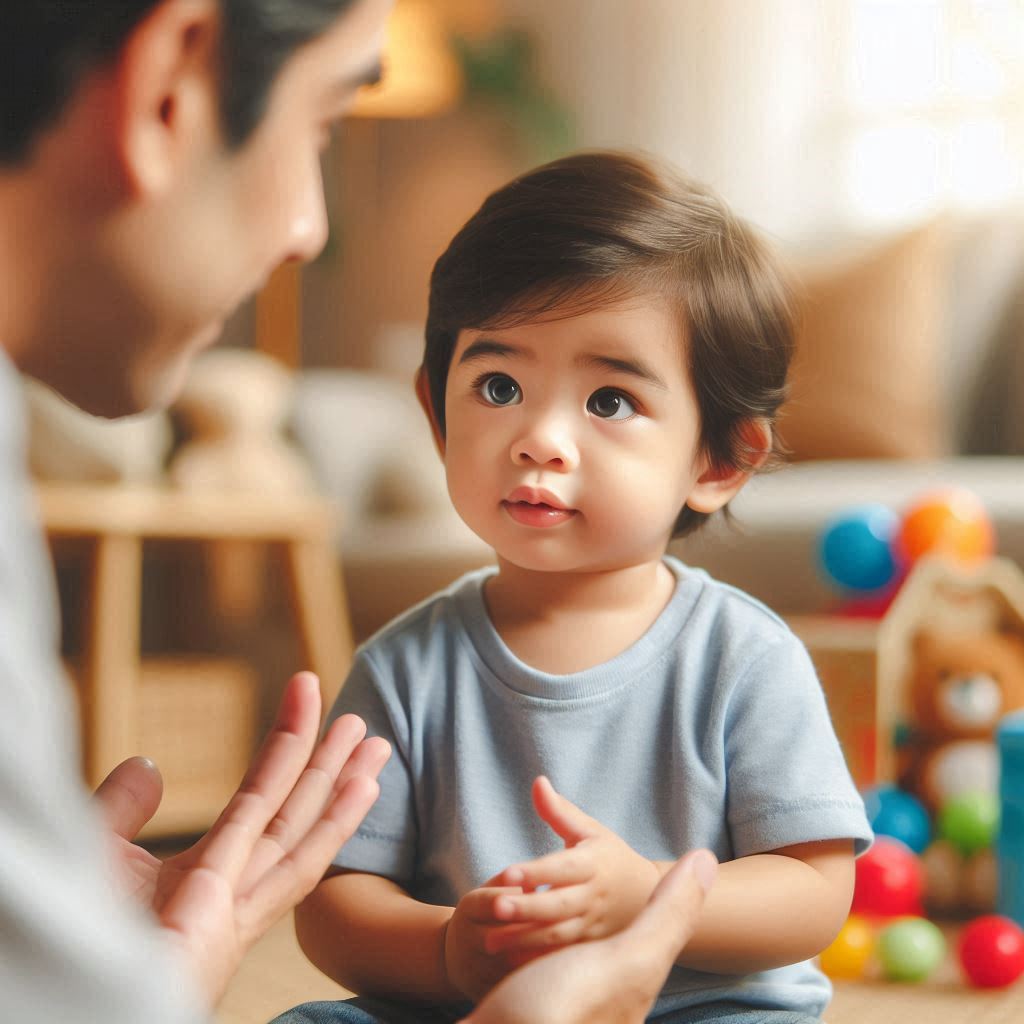Toddler Listening Skills: My Toddler Doesn’t Listen, But Can They Hear Me?
As a mother of three young children under four, I spend plenty of time with other parents and caregivers. Currently a stay-at-home mom with a background in audiology, I’m often asked by fellow parents about toddler listening skills and how to recognize signs that might indicate a hearing issue. These questions are common, as many parents wonder if their toddler’s listening behaviors are developmentally typical or if they could benefit from extra support in this area.
“She never listens to me!”
“He constantly asks me to repeat myself.”
“My daughter has only one volume, and it’s LOUD.”
These parents aren’t wrong to be concerned, as any of these behaviors could point to potential hearing difficulties. However, the key is to assess the context in which these behaviors occur.

Imagine you’re in the middle of composing an important email and your spouse comes in and says, “Hey, I’m craving a sandwich. Let’s head to the deli for lunch!” You’re focused on selecting the perfect words for your message, and it takes you a moment to even realize he’s speaking to you.
“Sorry, what?” you ask, after a brief pause.
“I’m dying for an Italian sub. Let’s go try that new spot up the street.”
You think, lunch sounds great, and you’ve been meaning to check out the place. But you’re in the middle of something you want to finish. “Okay,” you say. “Can we leave in about 15 minutes?”
“No,” he says firmly. “I want to go now.”
Whoa, you think. What’s with the rush? You try to ignore him, hoping to quickly finish your email and hit send before heading out.
“Hey! Are you listening? Let’s go get lunch!”
Now you’re getting irritated. Can’t he see you’re busy?
“Are you ignoring me? I really want to beat the lunch crowd.”
You hold up a finger, signaling that you need just another minute. He stands there, impatiently sighing, until you finally finish the email, close your laptop, and agree to go.
Now, imagine this scenario again, but this time, instead of you writing an email, your toddler is building a block tower. You are your spouse.
It’s a lighthearted example, and obviously, your email seems more pressing. But to your child, it’s just as important. When they’re absorbed in a task (or staring at a screen or munching on a snack), their “not listening” behavior can look a lot like they can’t hear you—partially because these situations often lead to frustration.
Here are a few simple ways to consider your toddler’s hearing and listening behaviors at home:
1. When they “don’t hear you,” are they busy with a task?
Are you asking them to do something they like (eat ice cream) or something they don’t enjoy (go to bed)? If there’s a difference in how they respond, it’s probably not a hearing problem.
2. How is their speech and language development?
This is a significant clue. We learn to speak based on what we hear, so if your child’s speech and language development are progressing normally, hearing loss is unlikely. (Though I should add that temporary hearing loss could occur from issues like frequent ear infections or excess earwax.)
I find this chart helpful for knowing which sounds children should typically develop at different ages. It shows that there’s a wide range of what’s “normal” and reminds us that some sounds are trickier for kids to master.
3. How loud is your child’s voice?
Do they adjust their voice to fit the environment, number of people, or urgency of their request?
My middle child is two, and I often feel like she’s always loud. But when I stop and think about it, she’s usually loud because she’s seeking attention. In quieter or calmer one-on-one moments, she’s able to speak at a more typical volume.
4. Do other adults in your child’s life have concerns about their hearing?
If your child goes to daycare, nursery, or spends a lot of time with a grandparent or caregiver, they may have insight into your child’s hearing abilities.
I’ve found that my kids often save their worst behavior for me, while they tend to listen better at daycare. As a result, the teachers don’t report the same level of “not listening” that I see at home.

Getting Expert Help for Your Child’s Hearing
If you’ve gone through these considerations and still feel like there’s a valid concern, your next step should be to talk to your child’s pediatrician. They can refer you to a pediatric audiologist for a hearing evaluation. These tests are often enjoyable for toddlers, as they’re designed like games, with plenty of lights, sounds, and even stickers.
When I was a graduate student in audiology, I used to think hearing loss was an easily solvable problem. I didn’t fully grasp why parents would be so upset by a diagnosis. In my mind, the solution seemed simple: hearing aids or cochlear implants in bright colors, wear them all the time, problem solved!
I cringe thinking about that now because I understand how much we parents hope and dream for our kids. We want to remove as many obstacles for them as possible and ensure they feel loved and accepted. And, knowing how difficult it is to get my kids to keep their socks on, I can imagine how challenging it might be to get them to wear hearing aids consistently.
My loud two-year-old recently woke up one morning with a slightly gray front tooth. Over the next few days, it darkened, and a dentist confirmed the tooth was dead.
Read More: 10 Common Teenage Problems and Solutions: 10 Key Social Issues
“Has she hit her head recently?” they asked.
I wanted to say, “She’s a toddler—of course, she bumps her head daily!” but I just shrugged.
The worry I felt over one of her baby teeth turning gray was out of proportion to the reality. It doesn’t cause her pain or affect her life in any way except that her smile is a little less perfect now—or as the dentist put it, “a bit unsightly.”
So, while I’ve developed more empathy for parents of children with hearing loss, I still feel confident about how much hearing aids and cochlear implants can benefit kids. Over 90% of children born with hearing loss are born to hearing parents, so it often comes as a shock. But pediatric audiologists are incredibly skilled at navigating the world of amplification and can help families adjust.
Before panicking, though, try a little test. Whisper from across the room, “Do you want to watch Bluey and eat ice cream?” See how quickly your child perks up.
Conclusion About Toddler Hearing Loss
If you’re genuinely concerned about your toddler’s listening skills, reaching out to a pediatrician is a great first step. They can refer you to a pediatric audiologist for a comprehensive hearing evaluation, offering clarity on whether your child’s responses are due to typical development or potential hearing concerns.
Advancements in hearing loss treatments have been remarkable, and pediatric audiologists are well-trained to support both children and parents through the assessment and treatment process. They can guide you with expert insights and solutions designed to improve your child’s ability to respond and engage with the world around them.
Before jumping to conclusions, though, try a simple listening test at home. Give your child a casual request, like asking if they’d like a favorite snack, and see how they respond. Observing their reactions in a relaxed setting can provide you with a sense of their current listening skills and any areas that may need extra support.
Read More: Daily Self-care for Kids: A Complete Guide to Building Healthy Habits
Self-care for Kids: A Complete Guide to Building Healthy Habits










